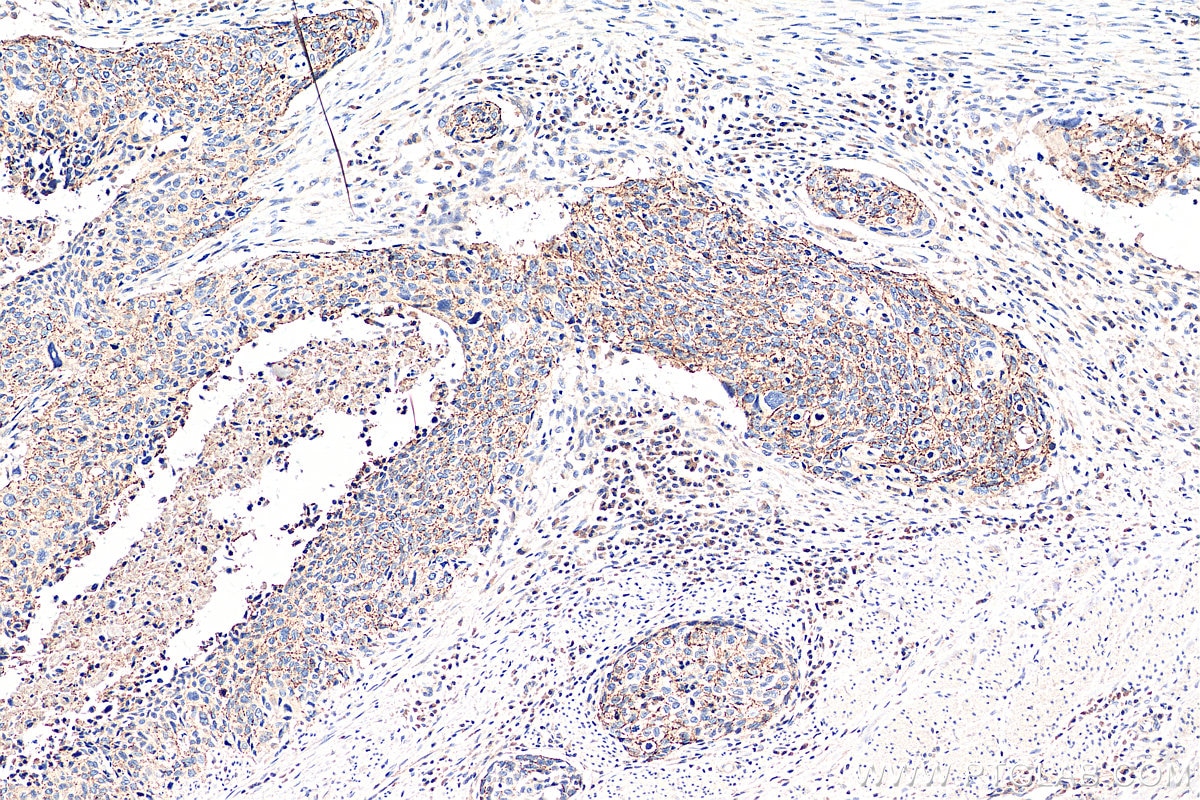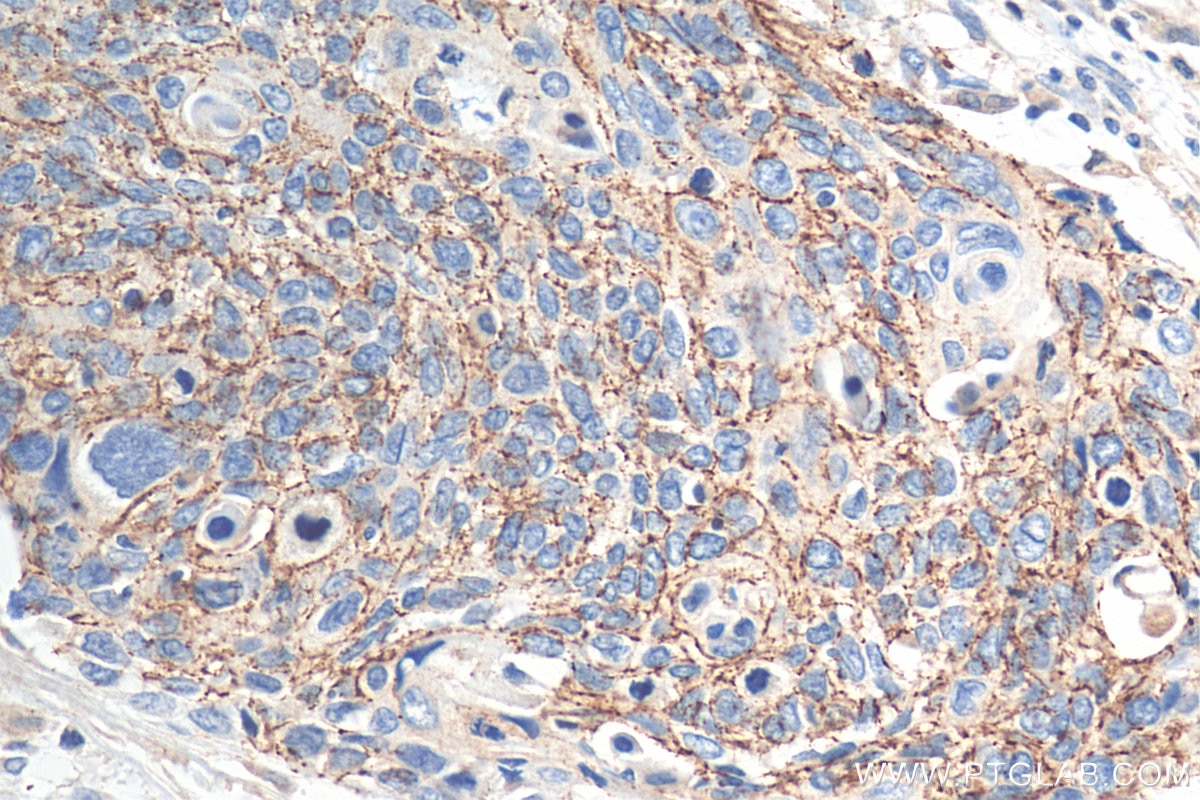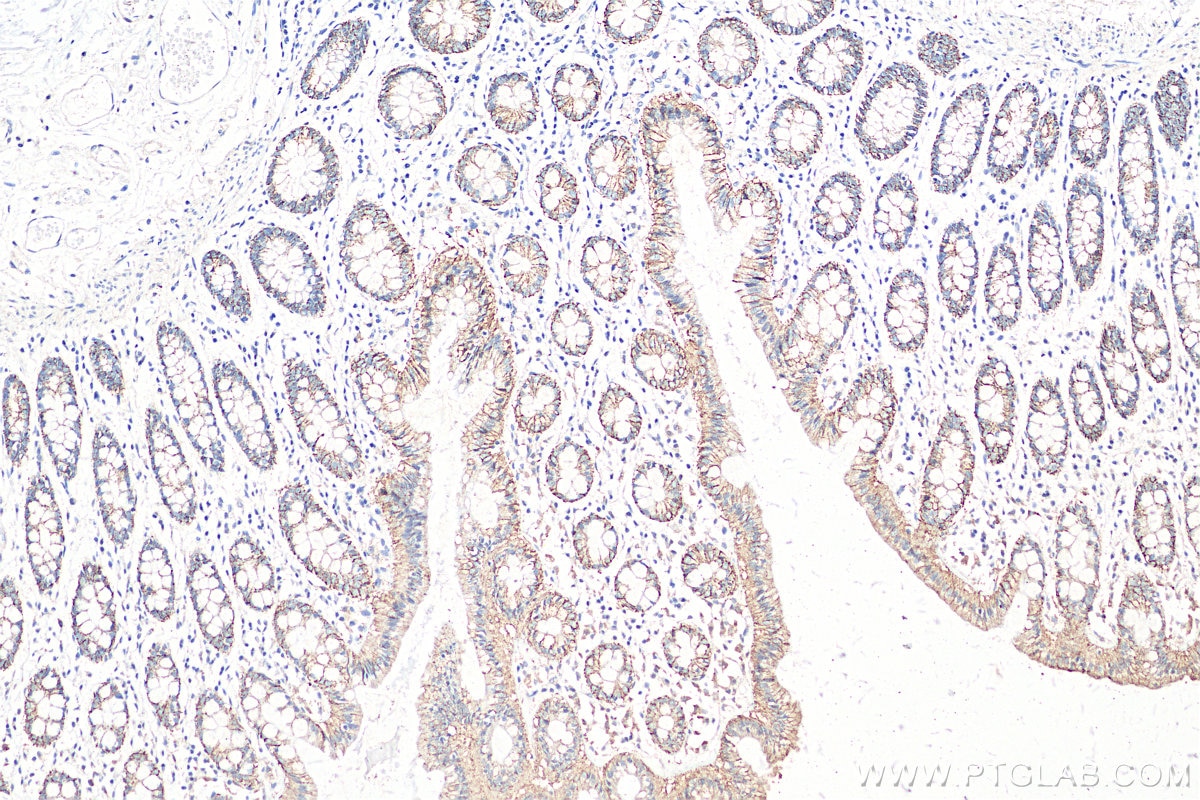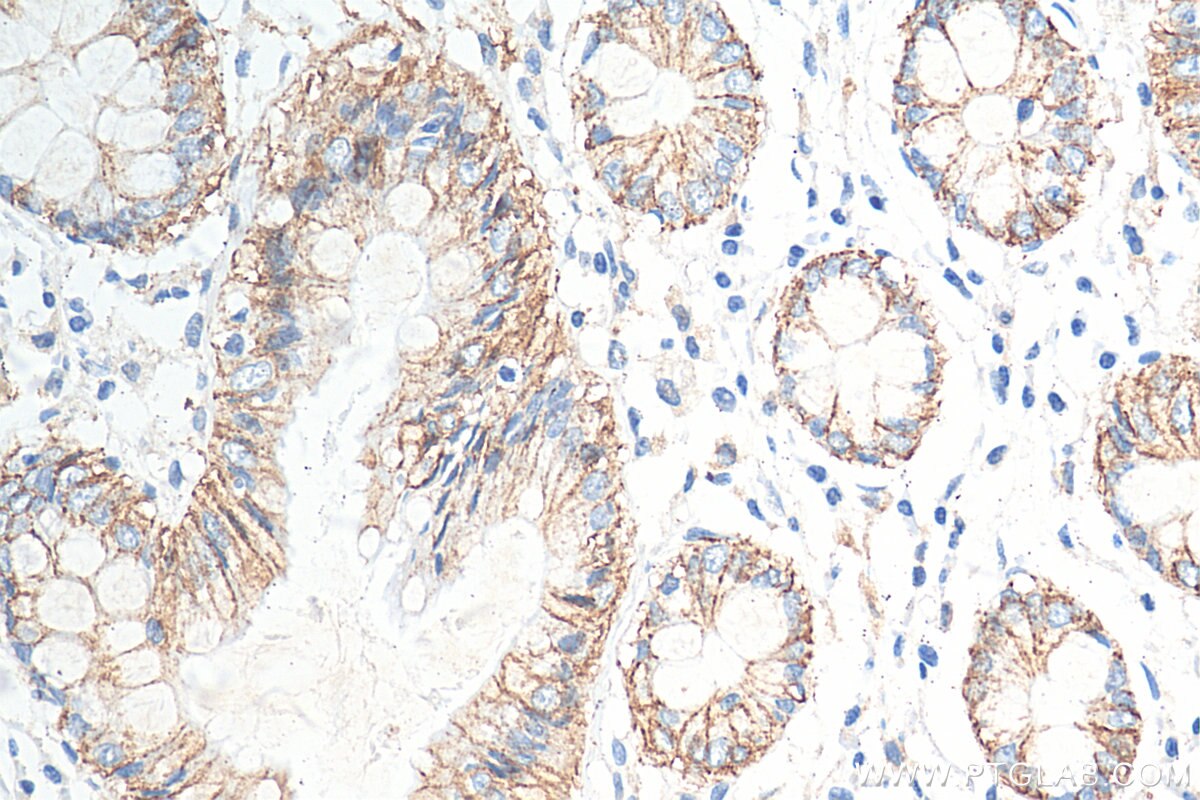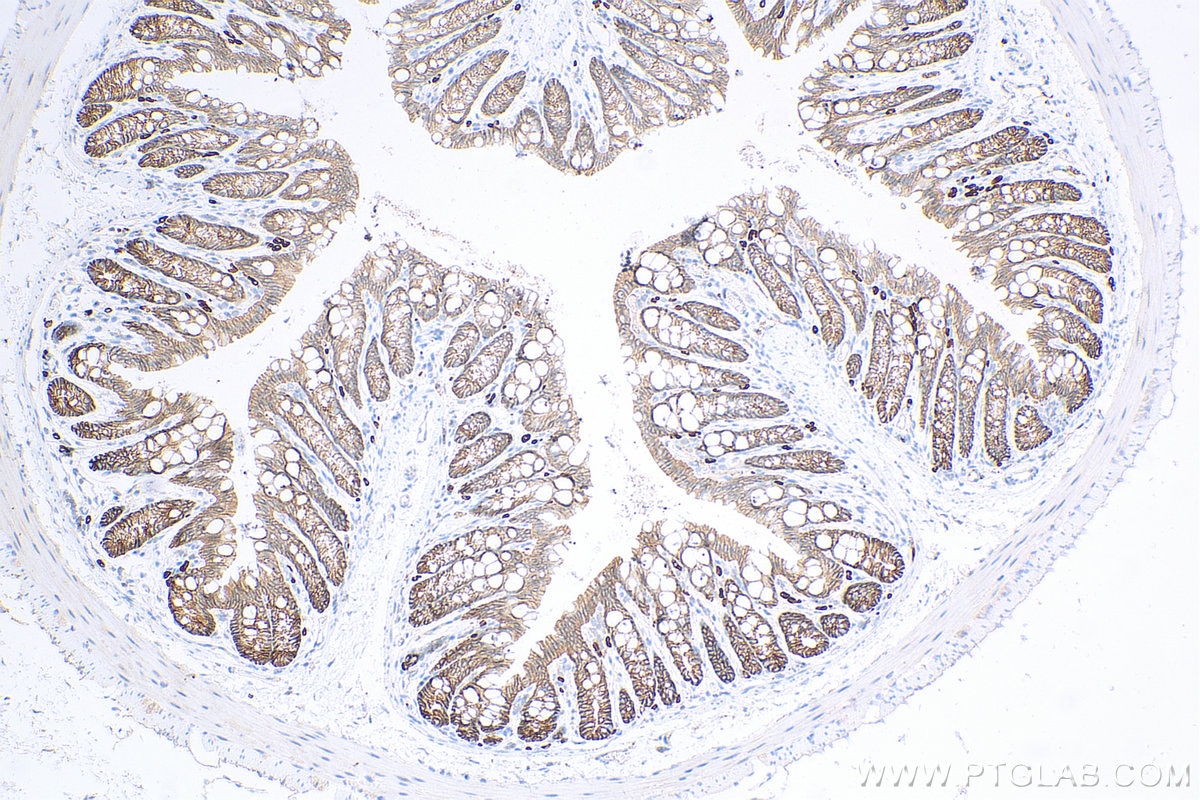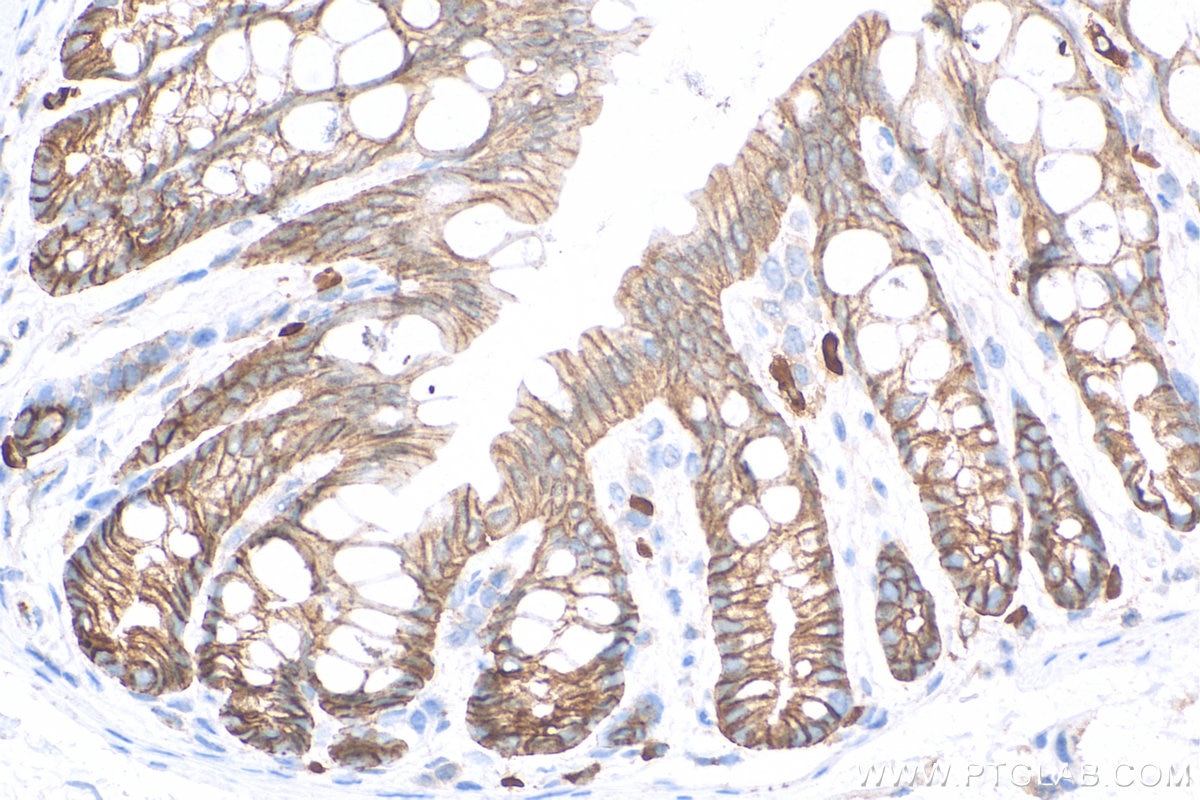Tested Applications
| Positive IHC detected in | human colon tissue, mouse colon tissue, human oesophagus cancer tissue Note: suggested antigen retrieval with TE buffer pH 9.0; (*) Alternatively, antigen retrieval may be performed with citrate buffer pH 6.0 |
Recommended dilution
| Application | Dilution |
|---|---|
| Immunohistochemistry (IHC) | IHC : 1:250-1:1000 |
| It is recommended that this reagent should be titrated in each testing system to obtain optimal results. | |
| Sample-dependent, Check data in validation data gallery. | |
Published Applications
| WB | See 1 publications below |
| IF | See 2 publications below |
Product Information
29795-1-AP targets Claudin 7 in WB, IHC, IF, ELISA applications and shows reactivity with Human samples.
| Tested Reactivity | Human |
| Cited Reactivity | mouse |
| Host / Isotype | Rabbit / IgG |
| Class | Polyclonal |
| Type | Antibody |
| Immunogen |
CatNo: Ag31706 Product name: Recombinant human CLDN7 protein Source: e coli.-derived, PGEX-4T Tag: GST Domain: 150-211 aa of BC001055 Sequence: NPLIPTNIKYEFGPAIFIGWAGSALVILGGALLSCSCPGNESKAGYRAPRSYPKSNSSKEYV Predict reactive species |
| Full Name | claudin 7 |
| Calculated Molecular Weight | 22.4 kDa |
| Observed Molecular Weight | 23 kDa |
| GenBank Accession Number | BC001055 |
| Gene Symbol | Claudin 7 |
| Gene ID (NCBI) | 1366 |
| RRID | AB_2935481 |
| Conjugate | Unconjugated |
| Form | Liquid |
| Purification Method | Antigen affinity purification |
| UNIPROT ID | O95471 |
| Storage Buffer | PBS with 0.02% sodium azide and 50% glycerol, pH 7.3. |
| Storage Conditions | Store at -20°C. Stable for one year after shipment. Aliquoting is unnecessary for -20oC storage. 20ul sizes contain 0.1% BSA. |
Background Information
Claudins are a family of proteins that are the most important components of the tight junctions, where they establish the paracellular barrier that controls the flow of molecules in the intercellular space between the cells of an epithelium. 27 claudins have been identified. They are small (20-27 kilodalton (kDa)) proteins with very similar structure. They have four transmembrane domains, with the N-terminus and the C-terminus in the cytoplasm.
Protocols
| Product Specific Protocols | |
|---|---|
| IHC protocol for Claudin 7 antibody 29795-1-AP | Download protocol |
| Standard Protocols | |
|---|---|
| Click here to view our Standard Protocols |
Publications
| Species | Application | Title |
|---|---|---|
J Agric Food Chem Lacticaseibacillus rhamnosus KY16 Improves Depression by Promoting Intestinal Secretion of 5-HTP and Altering the Gut Microbiota | ||
PLoS One Curcumin ameliorates aging-induced blood-testis barrier disruption by regulating AMPK/mTOR mediated autophagy |

